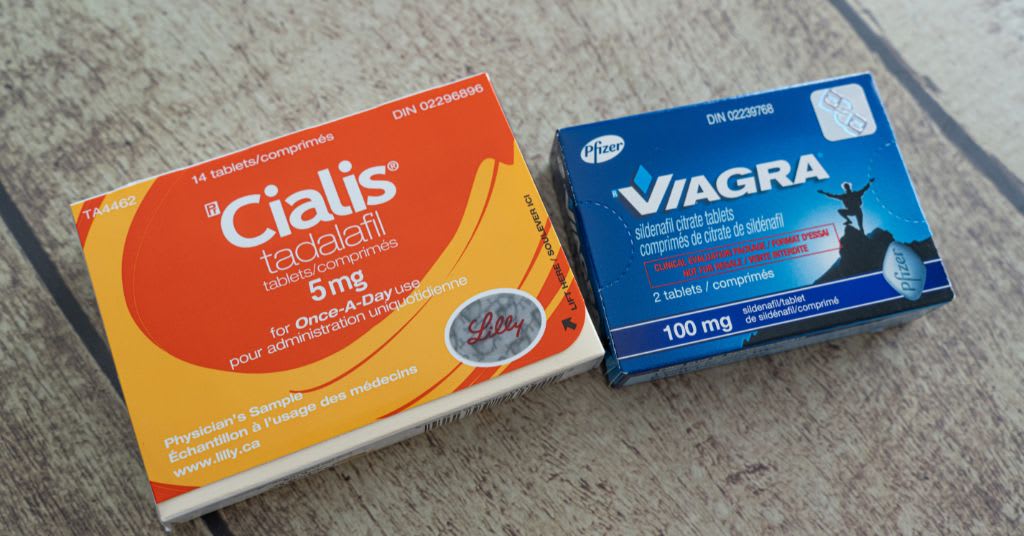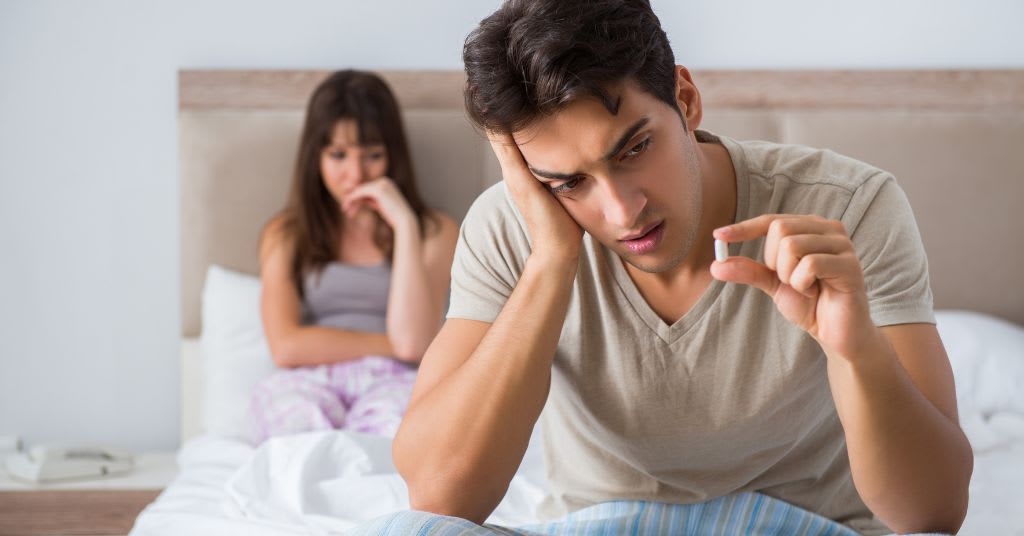Talking about sexual health can feel uncomfortable, especially when it comes to erectile dysfunction (ED). Many men worry that bringing it up will make things awkward or damage their relationship. But avoiding the conversation only makes it worse. The truth is open communication and a shared plan for erectile dysfunction self-care can actually strengthen intimacy. Understanding how to talk about erectile dysfunction with your partner in a healthy, honest way is one of the most important steps toward improving both sexual and emotional connection.
Understanding What ED Actually Is
Before diving into how to talk about erectile dysfunction with your partner, it helps to know what’s really going on. Erectile dysfunction simply means the consistent inability to get or maintain an erection that’s firm enough for sex. It’s not just about attraction; it’s about how the body and mind are working together (or not). 1
ED can be caused by:
- Physical issues like cardiovascular disease, diabetes, or medication side effects
- Psychological factors like anxiety, depression, or relationship stress. 1
Research shows that men with anxiety disorders are at a higher risk of developing ED, and the problem can feed into itself: anxiety makes erections harder to achieve, and ED increases anxiety. 1
Why Talking About It Matters
Avoiding the topic doesn’t make it go away. It just creates distance, frustration, and misunderstandings. Many men assume their partner will lose interest or judge them, so they say nothing. Meanwhile, their partner might think the lack of intimacy means rejection. That emotional disconnect can become damaging.
That’s why learning how to talk about erectile dysfunction with your partner is part of erectile dysfunction self-care. It’s not just about getting treatment; it’s about maintaining emotional closeness. Couples who address ED together are more likely to find effective treatments, rebuild confidence, and restore their sex life in a healthy way.
How to Talk About Erectile Dysfunction with Your Partner

Starting the conversation doesn’t have to be dramatic or awkward. The goal is to approach it as a team issue, not a personal flaw. Here’s a step-by-step way to handle it.
1. Pick the Right Time
Avoid bringing it up during or right after sex. Choose a calm, private time when you both feel comfortable and unrushed. The focus is not on blame, but on working together toward erectile dysfunction self-care.
2. Be Honest
Explain what’s been happening without self-criticism. For example, “I’ve noticed I’ve been having trouble keeping an erection sometimes, and it’s been worrying me.” Honesty reduces tension, while gentle language avoids making you or your partner feel at fault.
3. Bring in Education
It can help to share what you’ve learned about ED, including that it’s often related to blood flow, hormones, or mental health. 1 Mentioning facts from trusted sources can help normalize it. For instance, erectile dysfunction self-care can include getting help for depression or anxiety. This kind of conversation takes the blame out of it and focuses on understanding.
4. Discuss Solutions Together
After opening up, shift to erectile dysfunction self-care and treatment options. Encourage your partner to join you in exploring solutions, like scheduling a doctor’s appointment or trying lifestyle changes together. This turns the discussion into teamwork instead of a solo burden.
Building Confidence Through Erectile Dysfunction Self-Care
Medication helps many men, but it’s not the whole picture. True erectile dysfunction self-care involves addressing the emotional, physical, and lifestyle factors that affect sexual health.
Exercise and Healthy Habits
Regular physical activity can boost blood flow and reduce stress, both of which support erections. Eating a balanced diet, limiting alcohol, and maintaining a healthy weight can improve overall sexual performance.
Managing Anxiety and Stress
Since anxiety and high stress are often linked to ED, therapy can be a major part of erectile dysfunction self-care. Cognitive-behavioral therapy (CBT) and sex therapy help men manage performance-related worries and strengthen emotional intimacy. When anxiety disorders are treated, ED symptoms often improve as well. 1
Meditation, mindfulness, and breathing exercises can also reduce tension and promote relaxation before intimacy. It’s not about forcing results; it’s about creating a calm mindset where intimacy can naturally return.
Communication as Part of Self-Care
Good communication is a form of erectile dysfunction self-care. Checking in with your partner regularly, even after things improve, helps prevent misunderstandings. You don’t need to talk about it constantly, just keep the door open so both of you feel safe expressing how you’re feeling.
Addressing Emotional Connection
When couples focus only on the goal of “performance,” it can increase the pressure and tension. Finding other ways to be close can rebuild trust and reduce performance anxiety. This shift in focus is part of emotional erectile dysfunction self-care because it involves caring for the relationship, not just the symptom.
If either partner feels stuck emotionally, couples therapy or sex therapy can help rebuild communication. Therapists often guide couples through exercises that reduce anxiety and improve connection, creating a more supportive environment for physical recovery.
Medical Treatments and What to Expect

If you and your partner decide to explore medical help, your doctor will likely start by reviewing your medical history and lifestyle habits. Common treatments include oral medications such as sildenafil (Viagra) and tadalafil (Cialis). ED drugs work by improving blood flow to the penis, but they differ in how long they last. 2 Talk to your doctor to find out whether Viagra or Cialis would be better for you. These medications can be accessed through MailMyMeds, which offers a discreet way to have your prescriptions delivered right to your door.
However, medication alone isn’t always enough. ED drugs don’t increase sexual desire; they only help with blood flow. If your mind isn’t in the right place, no pill will fix that. That’s why combining treatment with emotional and relational support is crucial for long-term success.
Practical Tips
Here are some everyday erectile dysfunction self-care strategies that can make a difference:
- Avoid alcohol and smoking. Both can reduce blood flow and interfere with erections.
- Get enough sleep. Poor sleep affects stress levels.
- Exercise regularly. Even walking 30 minutes a day helps circulation and lowers anxiety.
- Don’t overthink. Focusing on the fear of failure increases anxiety. Instead, stay present with your partner.
- Stay consistent with medical advice. ED medications should be used as prescribed; self-adjusting the dose can reduce their effectiveness or lead to unwanted side effects.
- Be patient. Recovery takes time, especially when stress or anxiety is involved.
When to Seek Professional Help
If ED persists or causes stress in your relationship, it’s time to see a healthcare provider. A doctor can help determine if the cause is physical, psychological, or both. Sometimes, ED can signal cardiovascular disease or other medical issues. Addressing it early helps prevent larger problems later on. Your doctor will work with you to create a comprehensive plan. 1
Conclusion
At the end of the day, learning how to talk about erectile dysfunction with your partner comes down to honesty, patience, and teamwork. ED isn’t a personal failure or a sign of weakness; it’s a medical condition that can affect anyone, and it can be treated with the right approach. The most effective erectile dysfunction self-care plan combines open communication, healthy habits, and medical guidance.
If ED is affecting your confidence or your relationship, don’t wait it out. Talking to your partner and your doctor is the first step toward getting back on track. You can also visit our ED blog for more information about causes, treatment options, and how anxiety and stress can play a role in sexual health.
The content in this article is intended for informational purposes only. This website does not provide medical advice. In all circumstances, you should always seek the advice of your physician and/or other qualified health professionals(s) for drug, medical conditions, or treatment advice. The content provided on this website is not a substitute for professional medical advice, diagnosis, or treatment.






